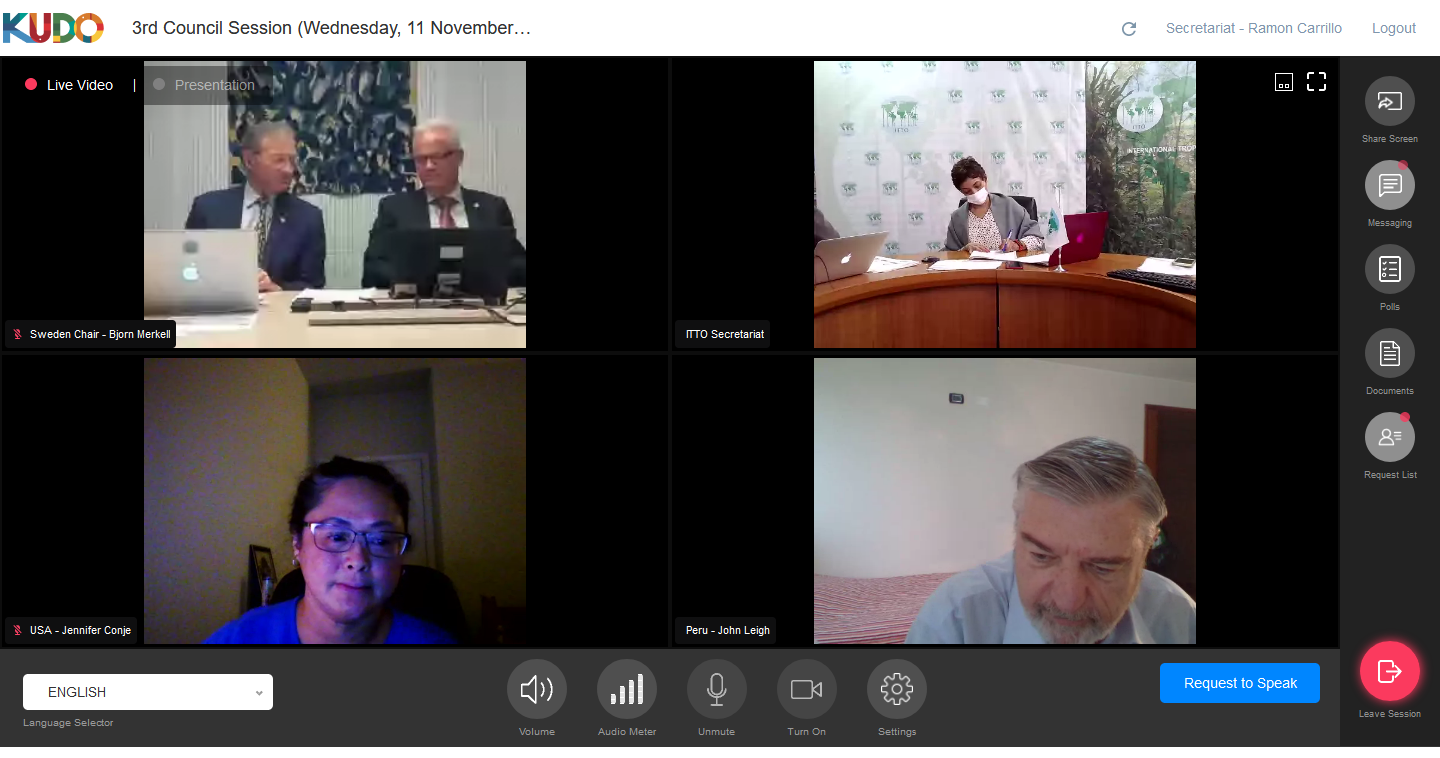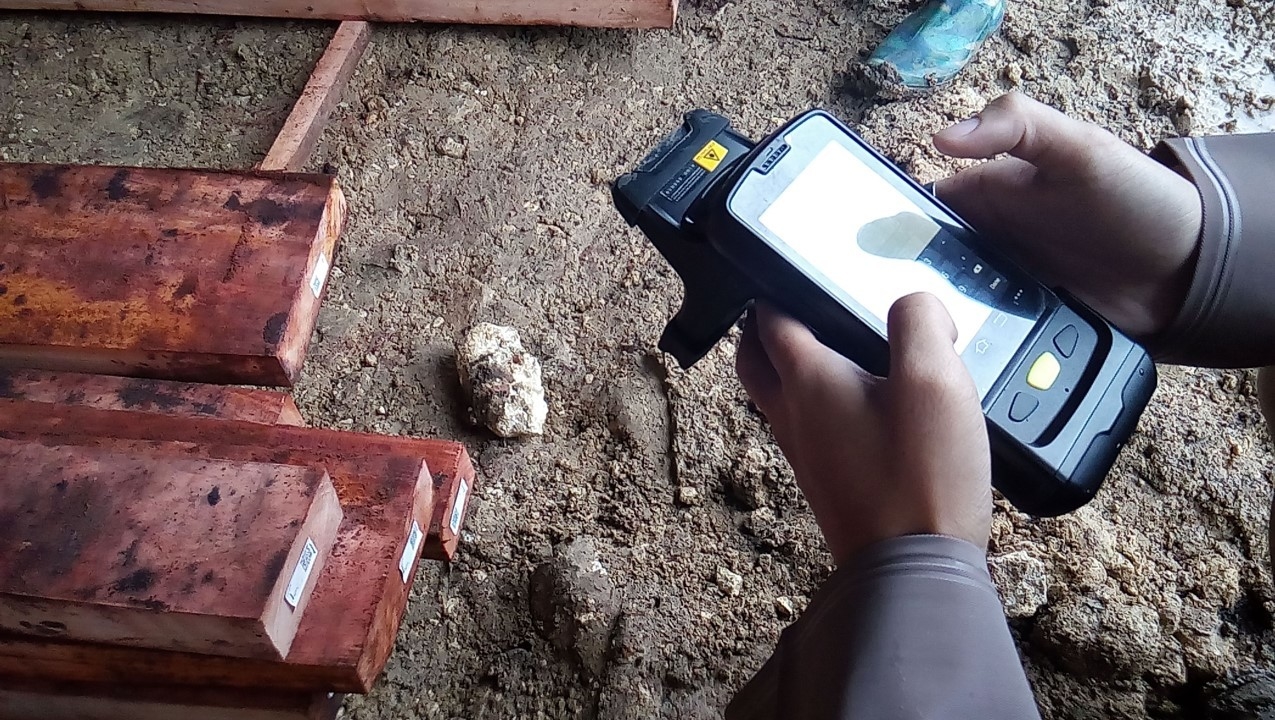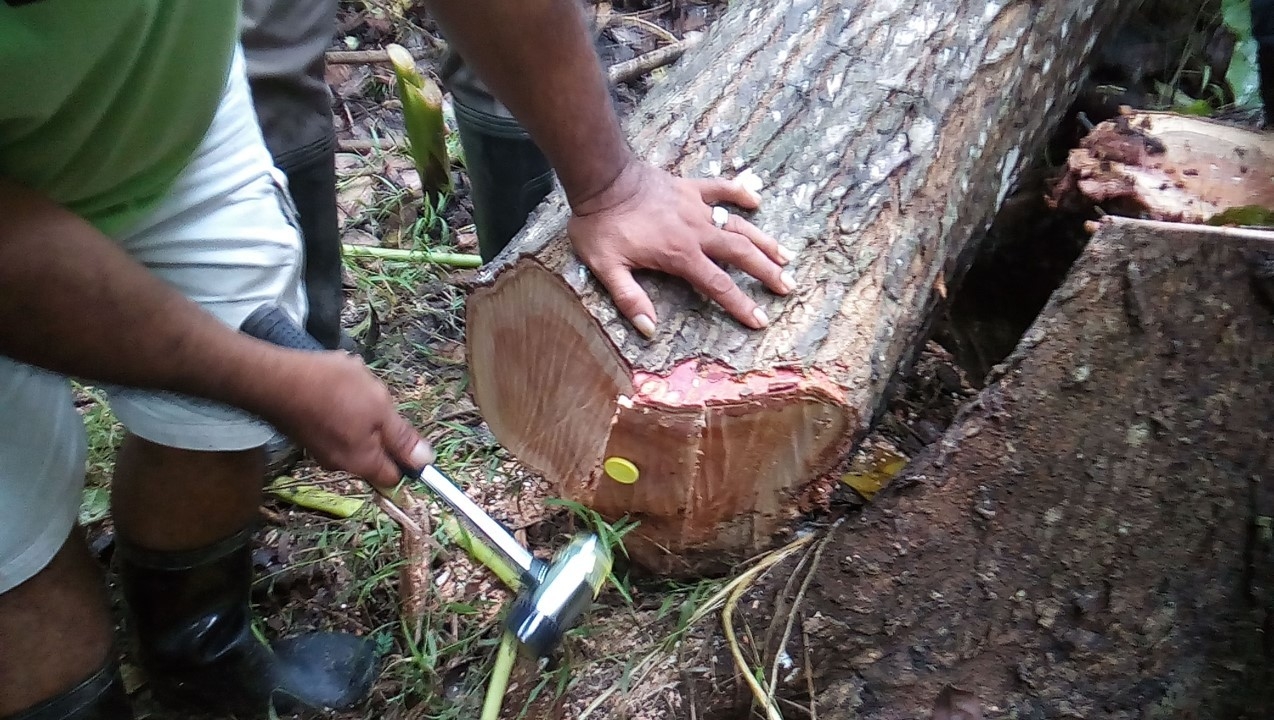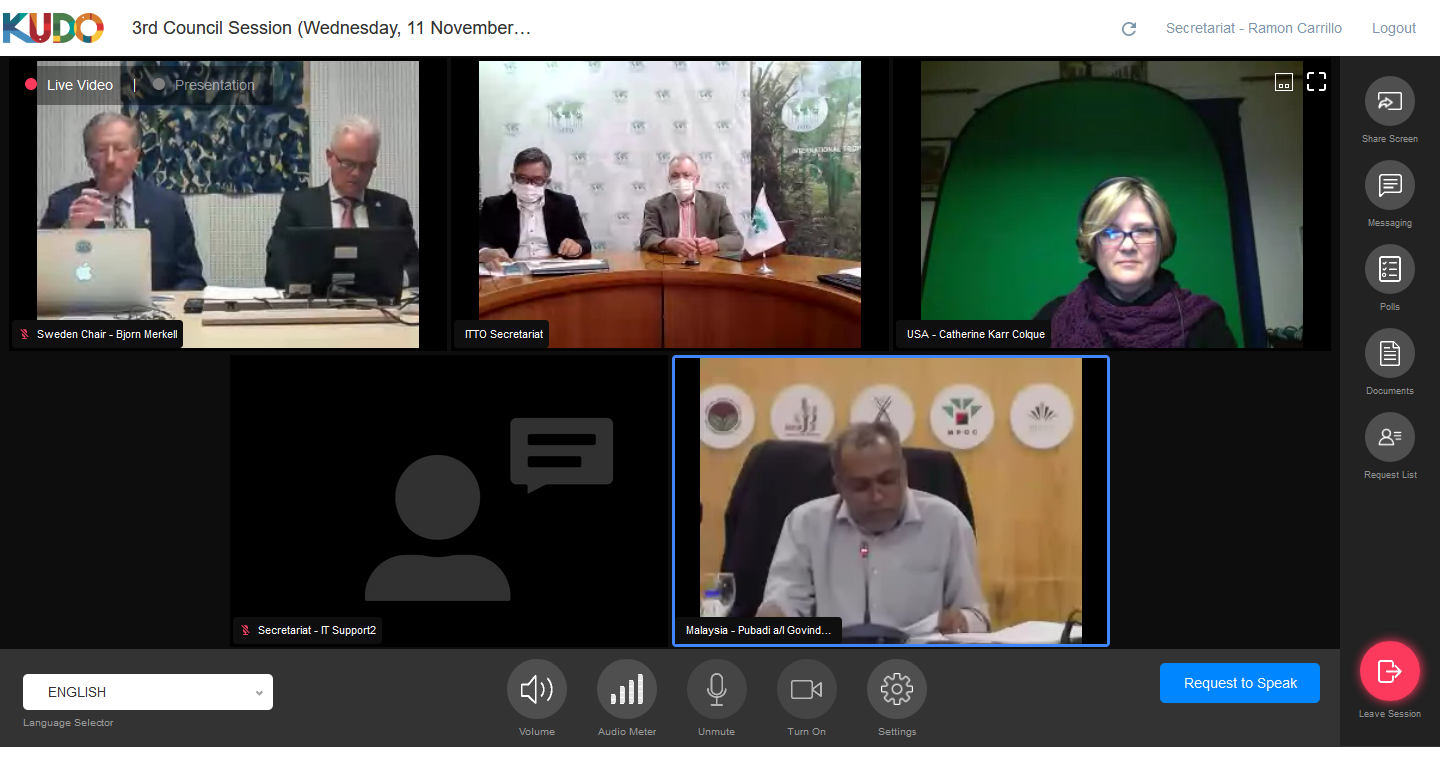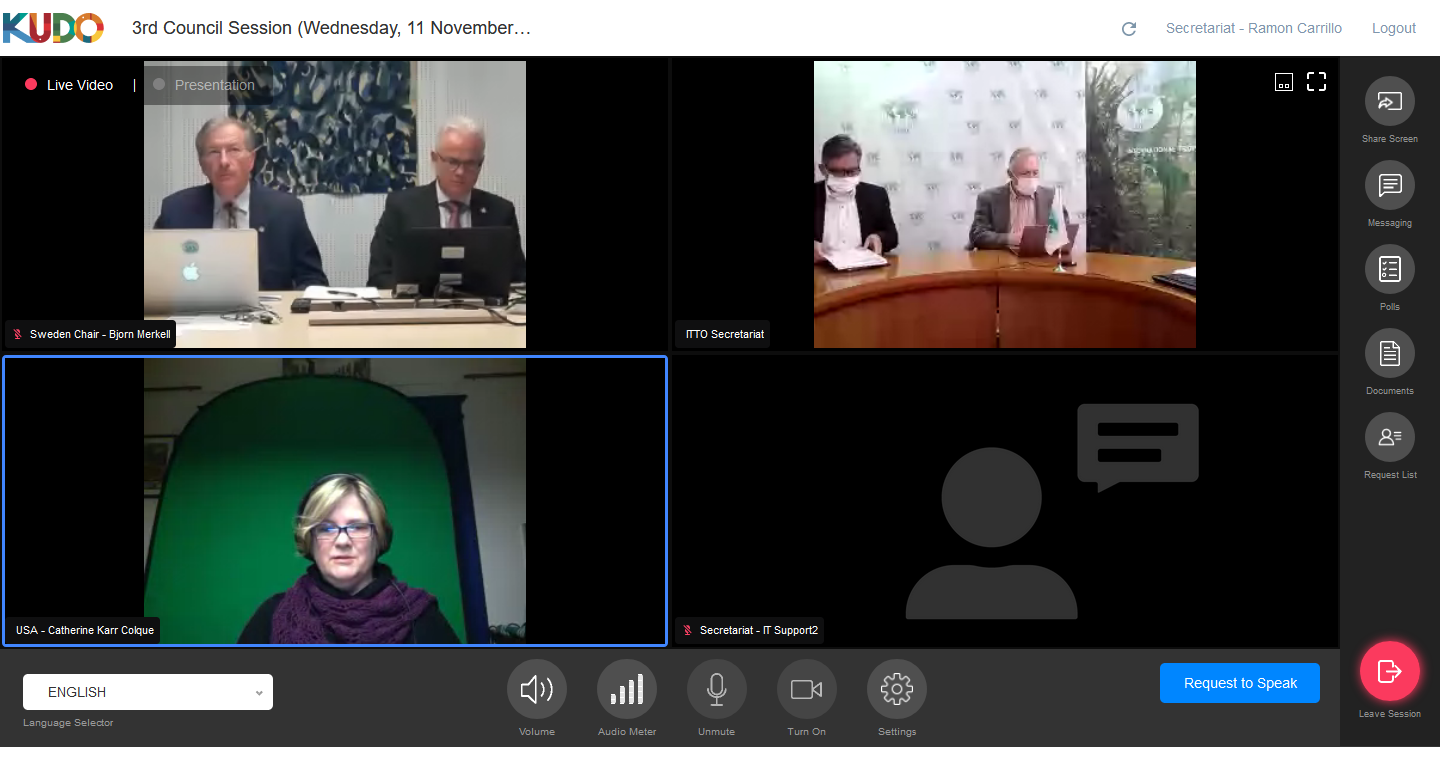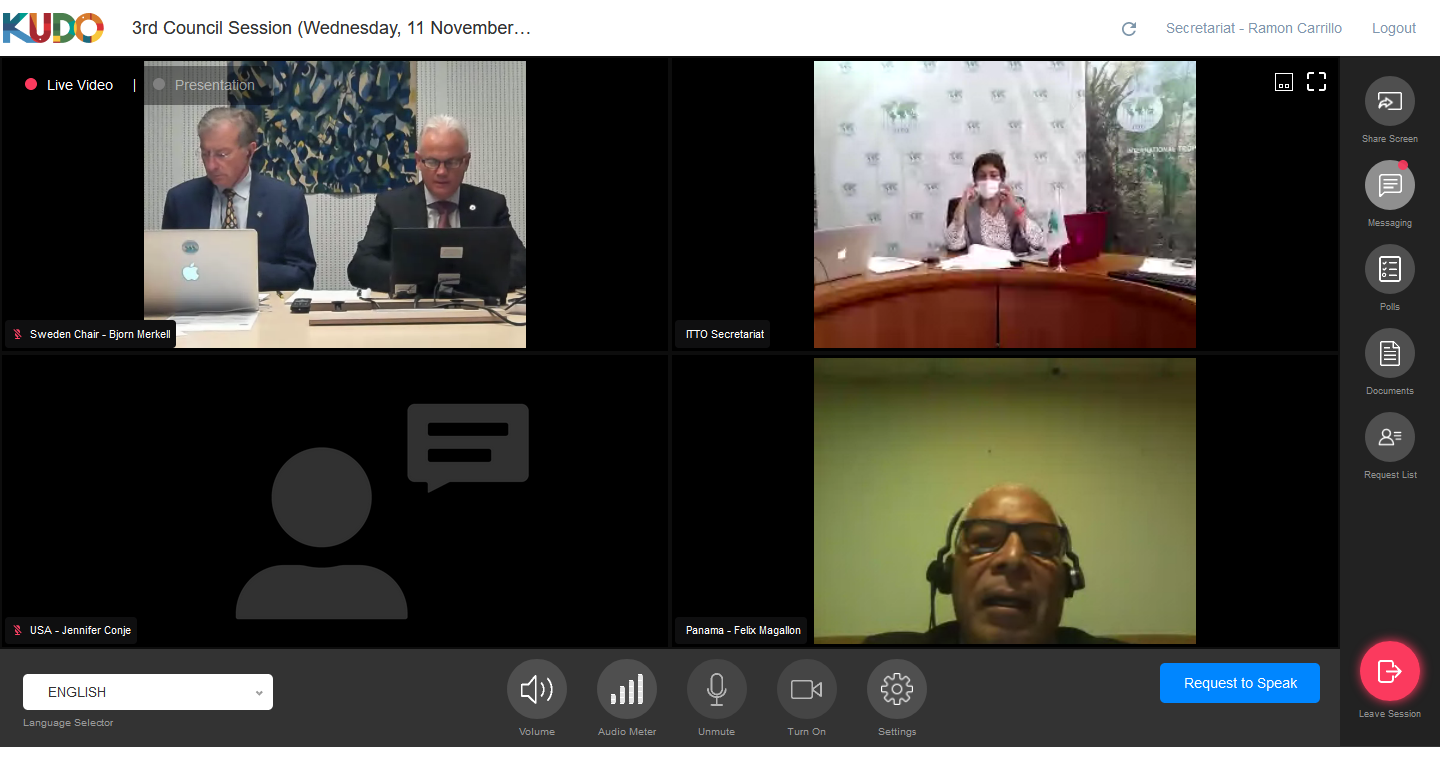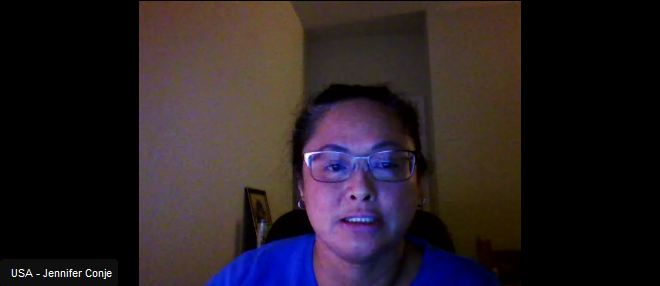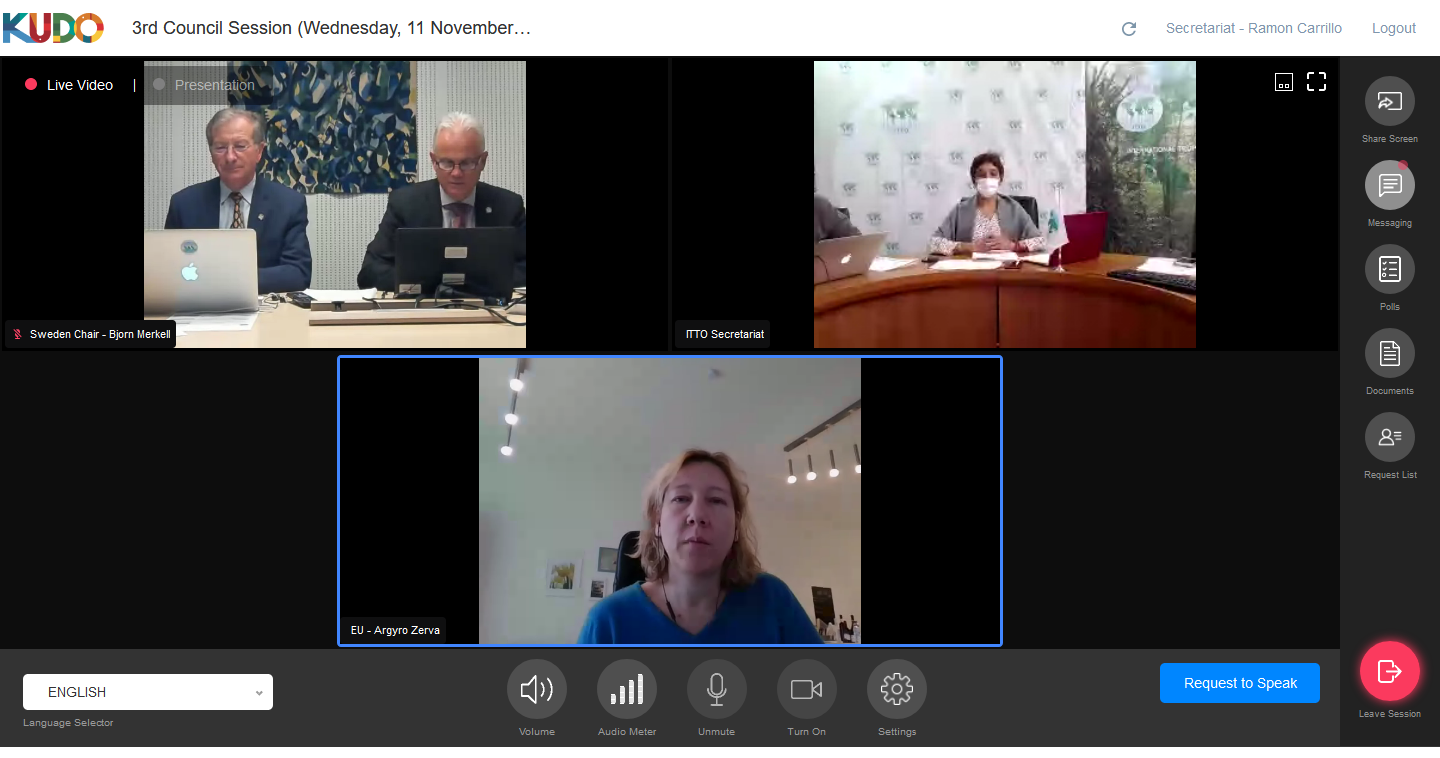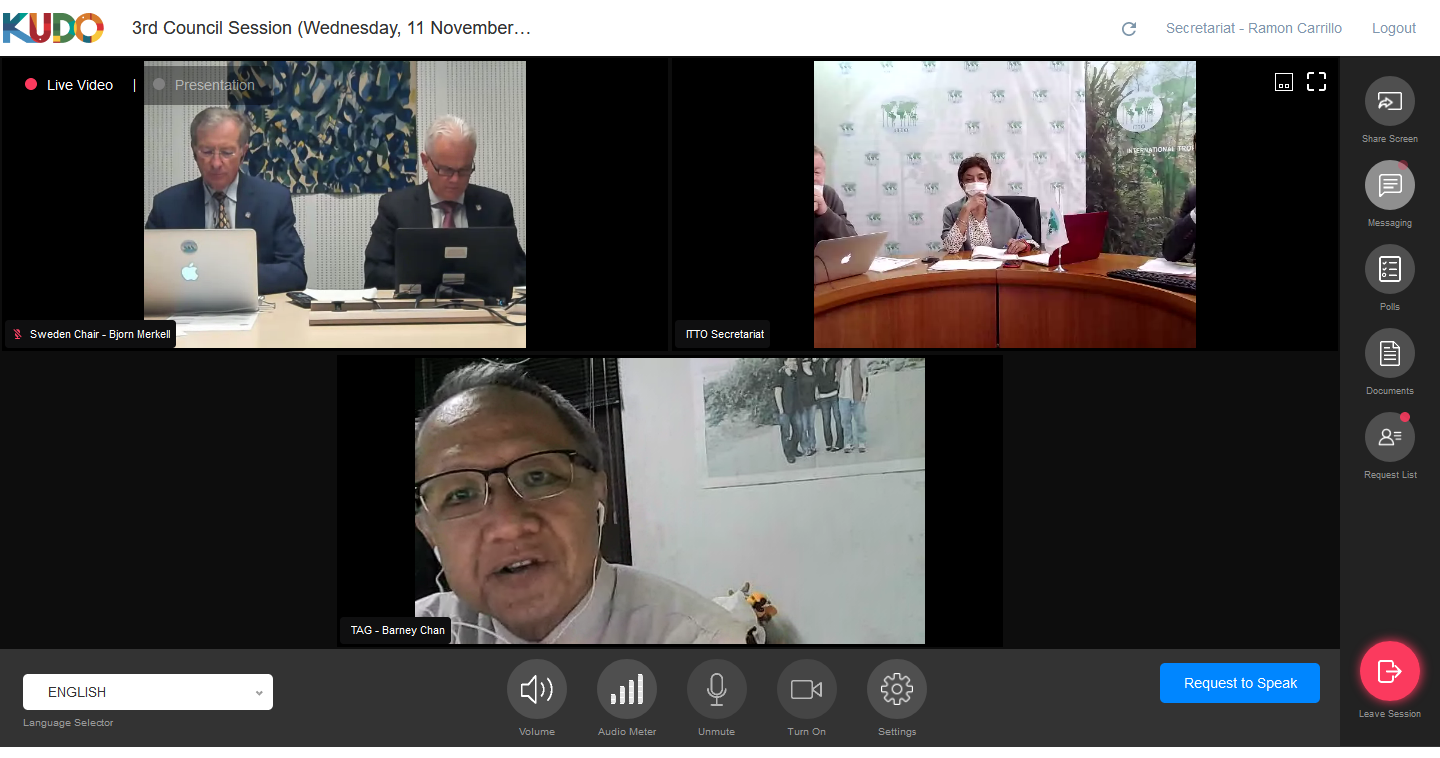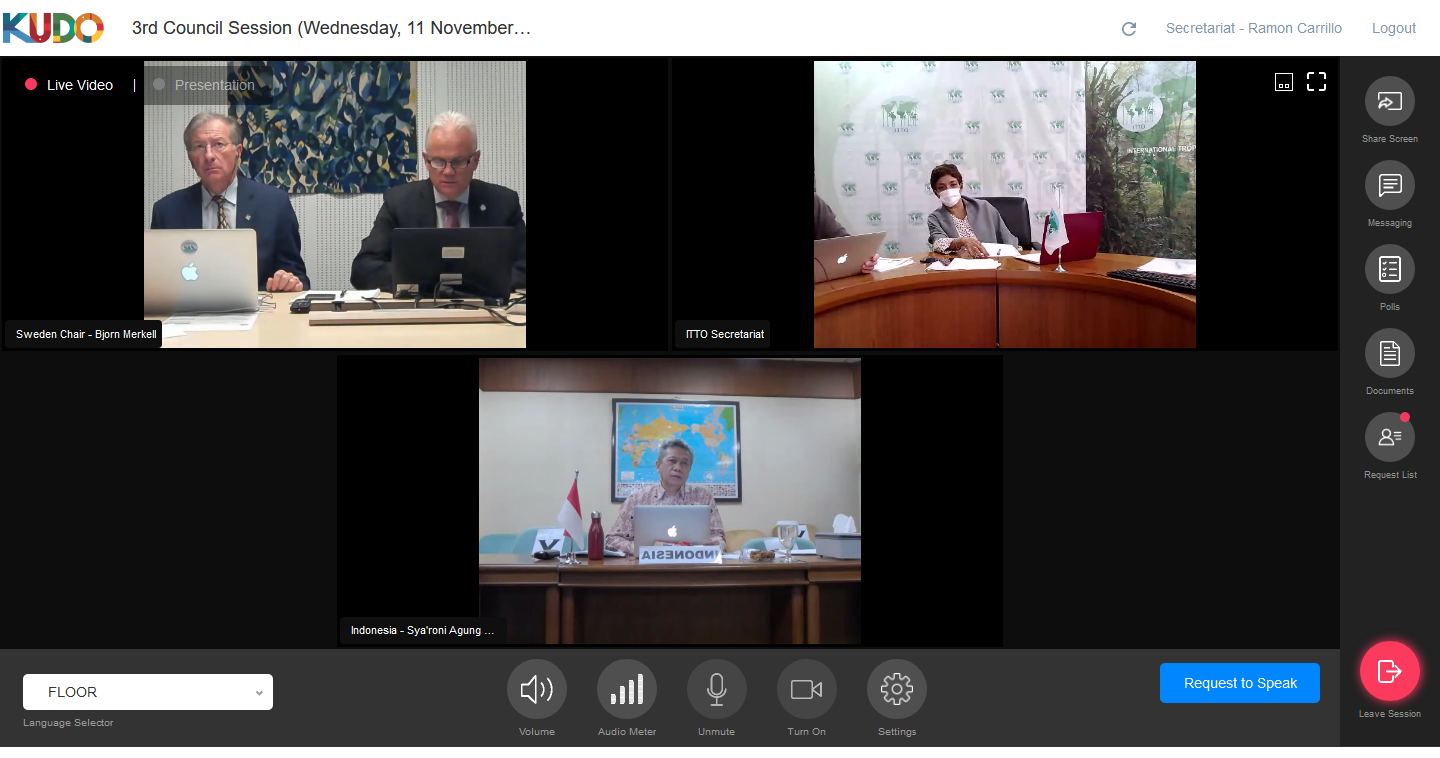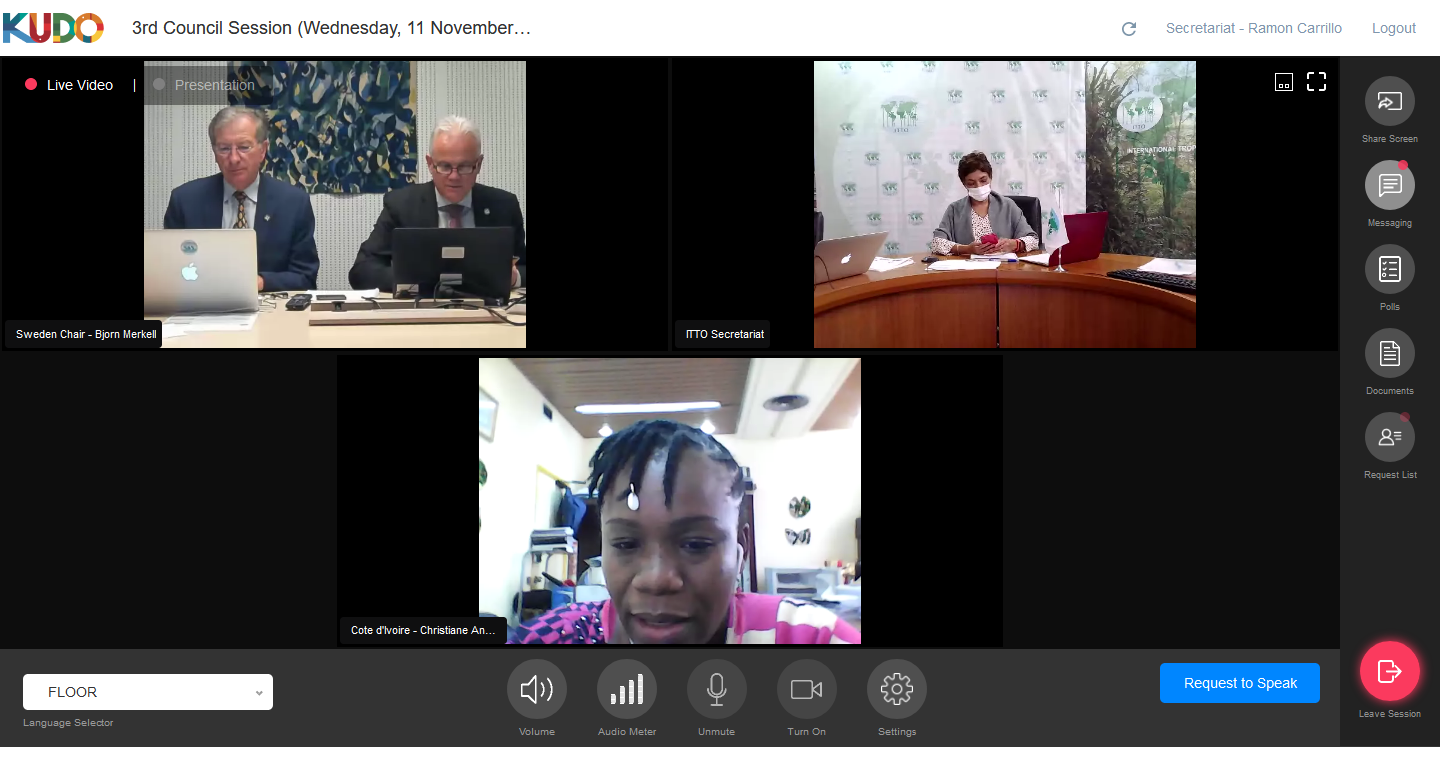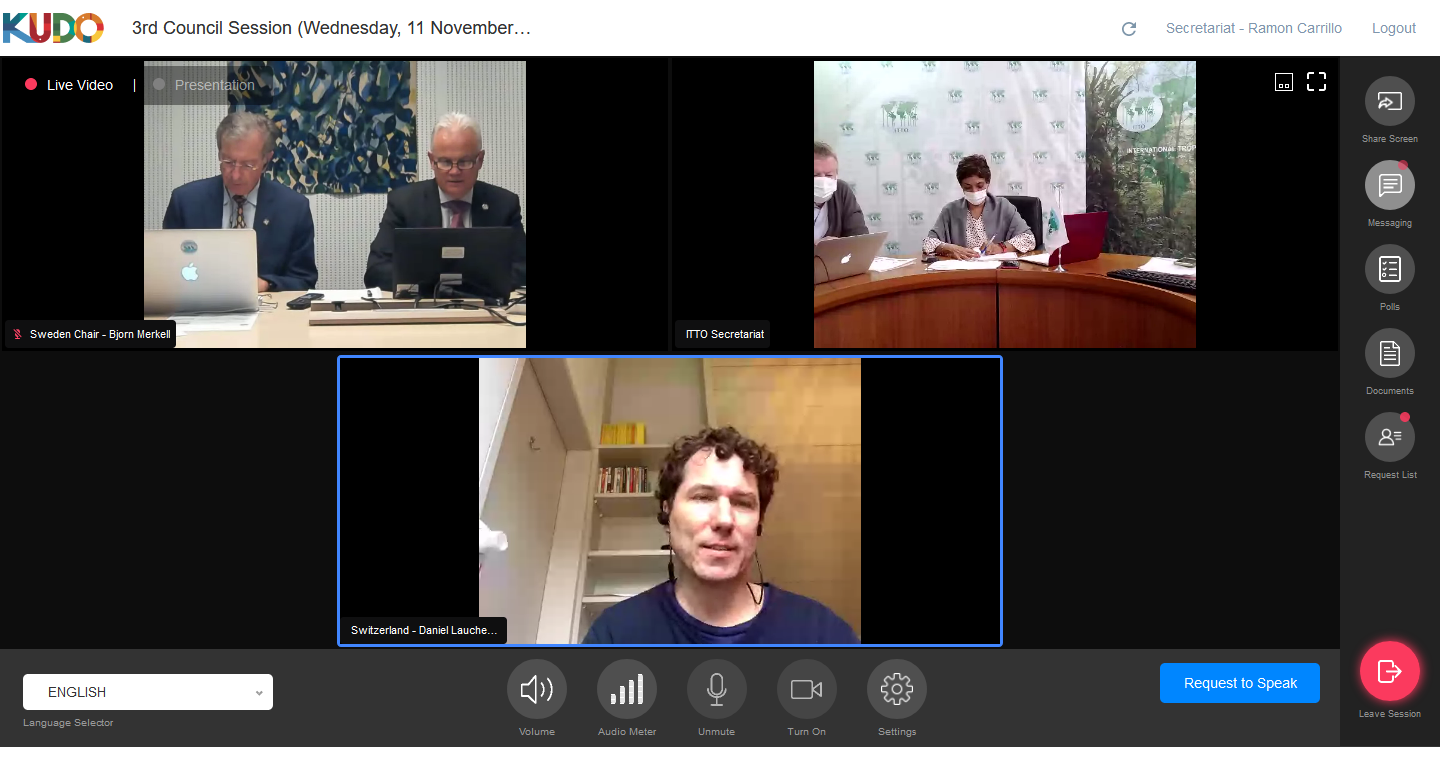Working group tables objectives for ITTO programme lines
12 November 2020: The Co-chairpersons of the ITTO Finance Architecture ad hoc Working Group (AHWG), Jennifer Conje (United States of America) and John Leigh (Peru), presented its report yesterday to the virtually convened 56th Session of the International Tropical Timber Council on, amongst other matters, agreed objectives for ITTO’s four programme lines (adopted at ITTC55). The AHWG worked on the objectives at the request of Council to guide the development and financing of project proposals, the streamlining of the regular project cycle and the concept note approach.
The AHWG on Implementation of ITTO’s New Financing Architecture, set out 3–5 objectives for each programme line and gave a detailed presentation on the new streamlined project cycle. Ms Conje outlined four funding scenarios to Council delegates and explained that the “virtual informed feedback loop”—put in place by the Council—would add transparency to the project cycle and enable members to provide feedback to the Secretariat before funding agreements are entered into with potential donors.
Delegates from Côte d’Ivoire, the European Union, Indonesia, Panama, Peru, Switzerland, the United States of America, the Civil Society Advisory Group, the Trade Advisory Group and the producer spokesperson spoke from the floor on this agenda item. Their comments addressed, among other things, the comprehensiveness of the objectives and programme lines; the need to operationalise the pilot programmatic approach in the implementation of the financing architecture and other administrative measures; the fate of project proposals already submitted in previous project cycles; and the role of national focal points in the financial architecture.
The full range of discussions on this and other agenda items will be summarized in the final report of the 56th Session of the Council.
Also on day 3:
- Council Chairperson Björn Merkell presented the report of the Advisory Board, a body established by the Council in 2019 to advice the Executive Director on the implementation of the pilot programmatic approach. The board will continue to meet every four months for the duration of the pilot phase, which is due to be completed at the end of 2022.
- The Council was informed that quorum was achieved, with 33 producers (720 votes) and 24 consumers (825 votes) represented at the session.
The Committee on Economics, Statistics and Markets (CEM) and the Committee on Forest Industry (CFI) met jointly on day 3. The two committees approved three projects and one pre-project for funding, discussed related policy work, and decided to postpone further project ex-post evaluations until the easing of COVID-19-imposed travel restrictions. The committees will meet again later in the week to complete their joint agenda.
The CEM-CFI officially closed a project in the Philippines implemented between 2013 and 2019 by the Forest Management Bureau to develop and test a national forest stock monitoring system (NFSMS). The project was financed by the governments of Australia, Japan, the Republic of Korea and the United States of America.
ITTO Secretariat systems analyst Li Qiang reported that the NFSMS established by this project includes a “back to the stump” traceability system that can track logs in the forest through primary processing into lumber. The system can be used, among other matters, to demonstrate chain of custody.
The NFSMS, which involves the use of QR codes, enables the issuance of VLO certificates certifying that timber shipments are legally sourced and harvested from verifiable sources. Mr Li stated hence, the NFSMS can serve as a legality assurance mechanism by demonstrating that traded wood and wood products nationwide are legally sourced.
The Philippines Department of Environment and Natural Resources plans to adopt the system at a national scale, and the Forest Management Bureau aims to expand it to encompass plywood, veneer and imported logs and lumber.
The International Tropical Timber Council meets at least once a year to discuss a wide-ranging agenda aimed at promoting sustainable tropical forest management and the trade of sustainably produced tropical timber.
Daily coverage of the session by IISD reporting services is available at https://enb.iisd.org/forestry/itto/ittc56/

